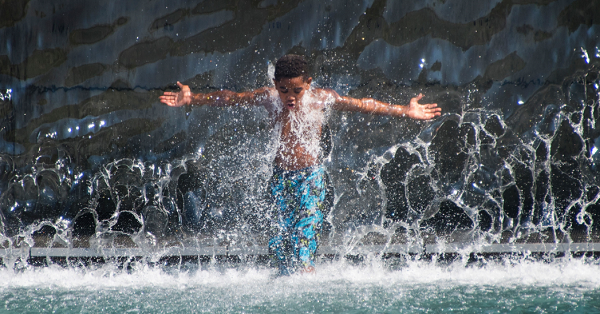Summer Heat Wave 2016: Tips On Keeping Cool During Excessively Hot Weather In NYC, DC And Boston

East coasters beware – it’s only going to get hotter over the weekend.
According to The Weather Channel, the humid and hot weather that’s been sizzling up the east coast for the past few days is only going to continue. The high temperatures will range anywhere between 5 to 15 degrees higher than what the east coast normally experiences during this time in August, not to mention the excessive moisture coming along with the heat that is expected to make the weather feel even hotter. In fact, the humidity is said to be so high on the east coast this upcoming weekend that 90 degree weather will most likely feel like 100 or hotter in most cities.
The National Weather Service recently issued a heat wave warning for the east coast including major cities like New York City, Philadelphia and the Baltimore-Washington D.C. area. The excessive heat is expected to last from Saturday morning, with temperatures predicted to be at least the mid-90s with a ranging heat index from 105 to 110 degrees in New York, until late Sunday evening.
Daily records in several cities on the east coast are also expected to beak.
Here’s what you need to know about heat waves and how to survive them.
What is an excessive heat warning?
According to the Red Cross, an excessive heat warning is issued anytime the heat index is forecast to meet or exceed locally defined warning criteria for at least two days.
What is a heat index?
Heat index refers to the temperature your body feels anytime heat and humidity are combined.
How should you prepare for a heat wave?
The most important factor for heat wave prep is by making sure you’re actually in tune with the weather. Listen, watch or check to your local news online to stay aware of the temperatures.
Finding shelter in cool areas is highly recommended. If you don’t have access to an air conditioner, find another alternative to keep cool by hanging out at a library, mall or anywhere there may be central cooling.
Wear loose-fitting, airy, light colored clothing. Dark clothing absorbs sunrays.
Make sure you have lots of water on hand to prevent from becoming dehydrated as well as an emergency disaster kit in case any power outages take place. Avoid drinking alcohol, caffeine and drinks that are high in sugar.
Eat lighter portioned meals throughout the day, and eat them more often.
Who are the most at risk during heat waves?
Not only can excessive heat bring about cramps, swelling and fainting but heat waves can also be life threatening. According to The New York Times, heat waves are responsible for more deaths in American than flooding, lightning, tornadoes, hurricanes or cold climate.
Heat waves are particularly more dangerous for elderly, young children, people suffering from sicknesses, overweight individuals and animals.
Also keep in mind city dwellers will feel the effects of a heat wave and have a higher chance of being affected by the risks of heat waves compared to those who live in rural areas.
© Copyright IBTimes 2025. All rights reserved.






















